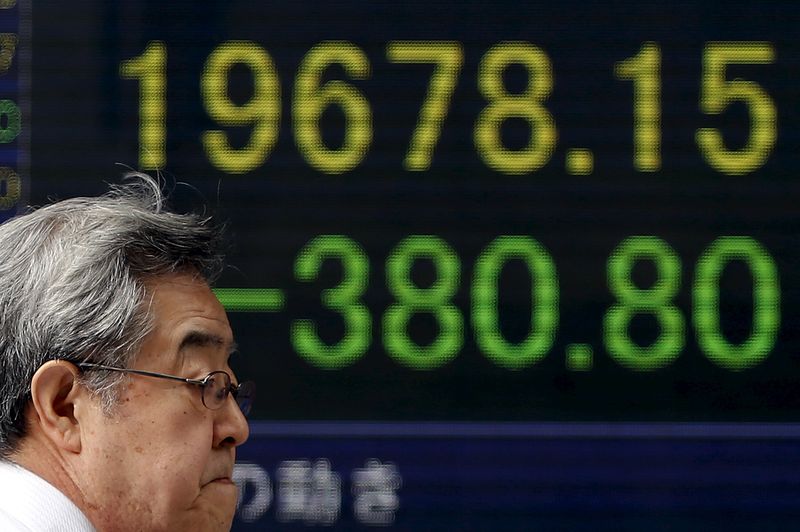By Gina Lee
Investing.com – Asia Pacific stocks were down on Friday morning, as the ripple effects from China Evergrande Group's (HK:3333) default continue to be felt. The omicron COVID-19 variant was also back in the spotlight, with investors gauging its risk to the economic recovery.
China’s Shanghai Composite was down 0.25% by 9:04 PM ET (2:04 AM GMT) while the Shenzhen Component was down 0.41%. China Evergrande and Kaisa Group Holdings Ltd. (HK:1638) have officially defaulted on their dollar debt. Fitch Ratings cut China Evergrande to “restricted default” after the developer failed to make two coupon payments by the end of a grace period on Monday. Kaisa, which failed to repay a $400 million dollar bond that matured Tuesday, also got the same label from Fitch.
Meanwhile, the People’s Bank of China raised its foreign currency reserve requirement ratio for the second time in 2021 after the yuan climbed to the highest since 2018, prompting the offshore yuan to decline the most since July 2021.
Hong Kong’s Hang Seng Index was down 0.30%.
Japan’s Nikkei 225 was down 0.49% and South Korea’s KOSPI was down 0.47%.
In Australia, the S&P/ASX 200 was down 0.45%.
Omicron concerns are rising again after a study found it is 4.2 times more transmissible than the delta variant in its early stages.
“Ultimately the issue from a health perspective is that even if omicron does prove to be less severe, which the initial indications so far have pointed to, a rise in transmissibility could offset that,” Deutsche Bank (DE:DBKGn) strategists including Jim Reid said in a note.
That could mean that more people are in the hospital, “even if a lower proportion of them are severely affected,” the note added.
Meanwhile, U.S. data, including the consumer price index, will be released later in the day.
“Various Fed participants, including Chairman Jerome Powell, have signaled a hawkish shift in their policy stance, catalyzed by increasing discomfort with elevated inflation against a backdrop of robust growth and ongoing strengthening in labor markets conditions,” Morgan Stanley (NYSE:MS) economists and strategists including Ellen Zentner said in a note.
“We revise our Fed call and now expect the Fed to begin raising rates in Sept. 2022, two quarters earlier than our prior forecast,” the note added.
The Fed, European Central Bank, and the Bank of England will hand down their policy decisions next week.
